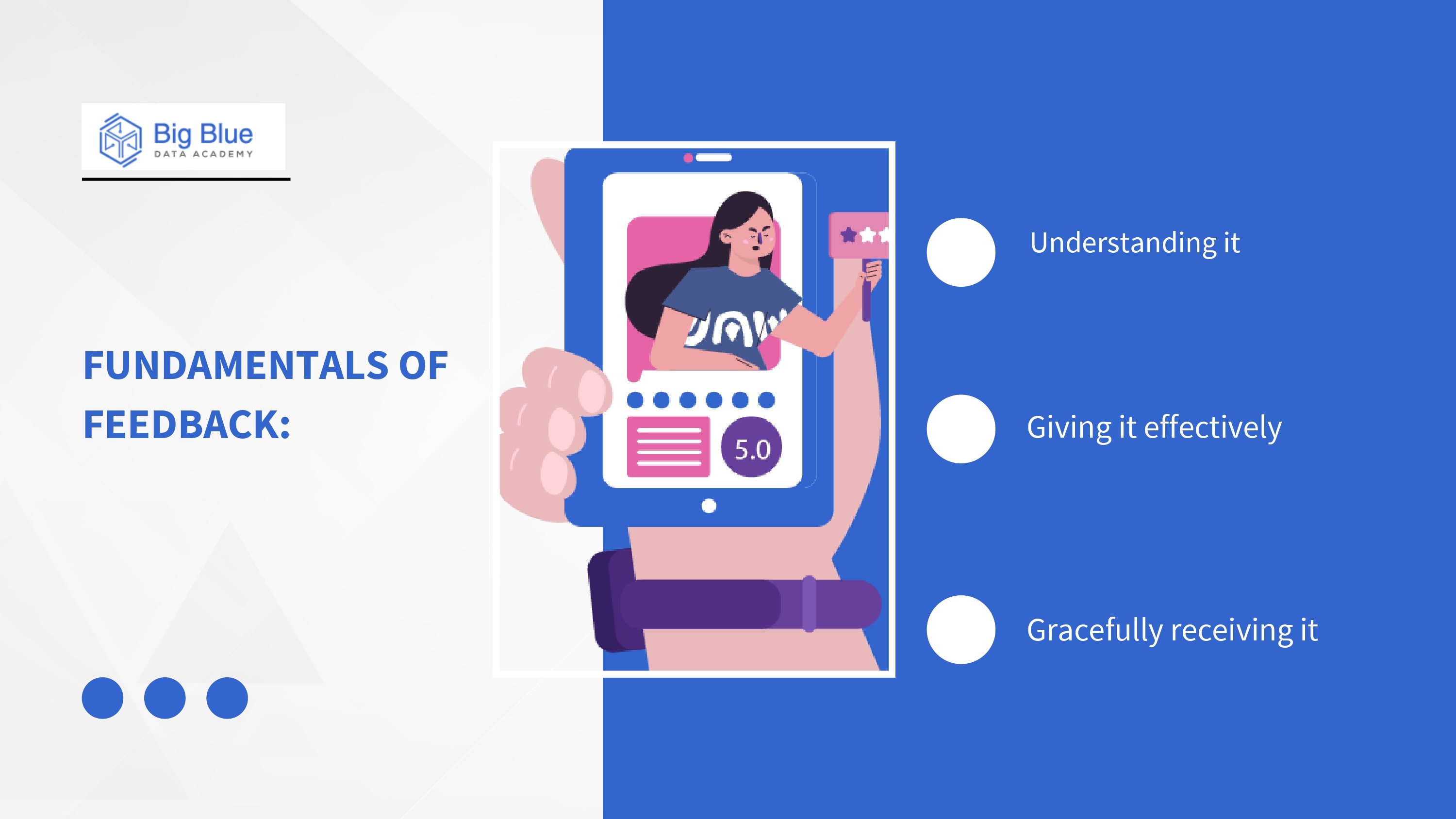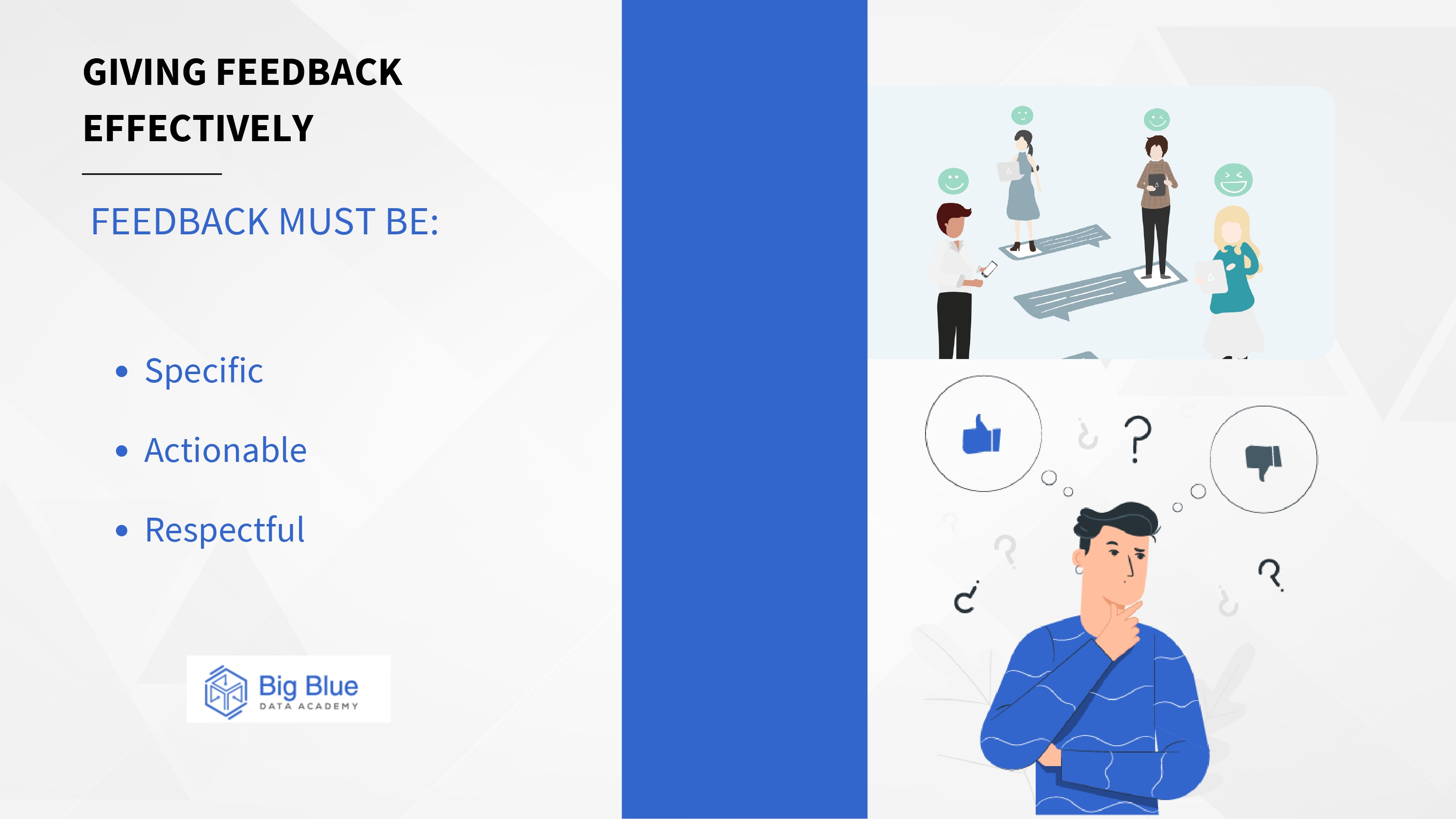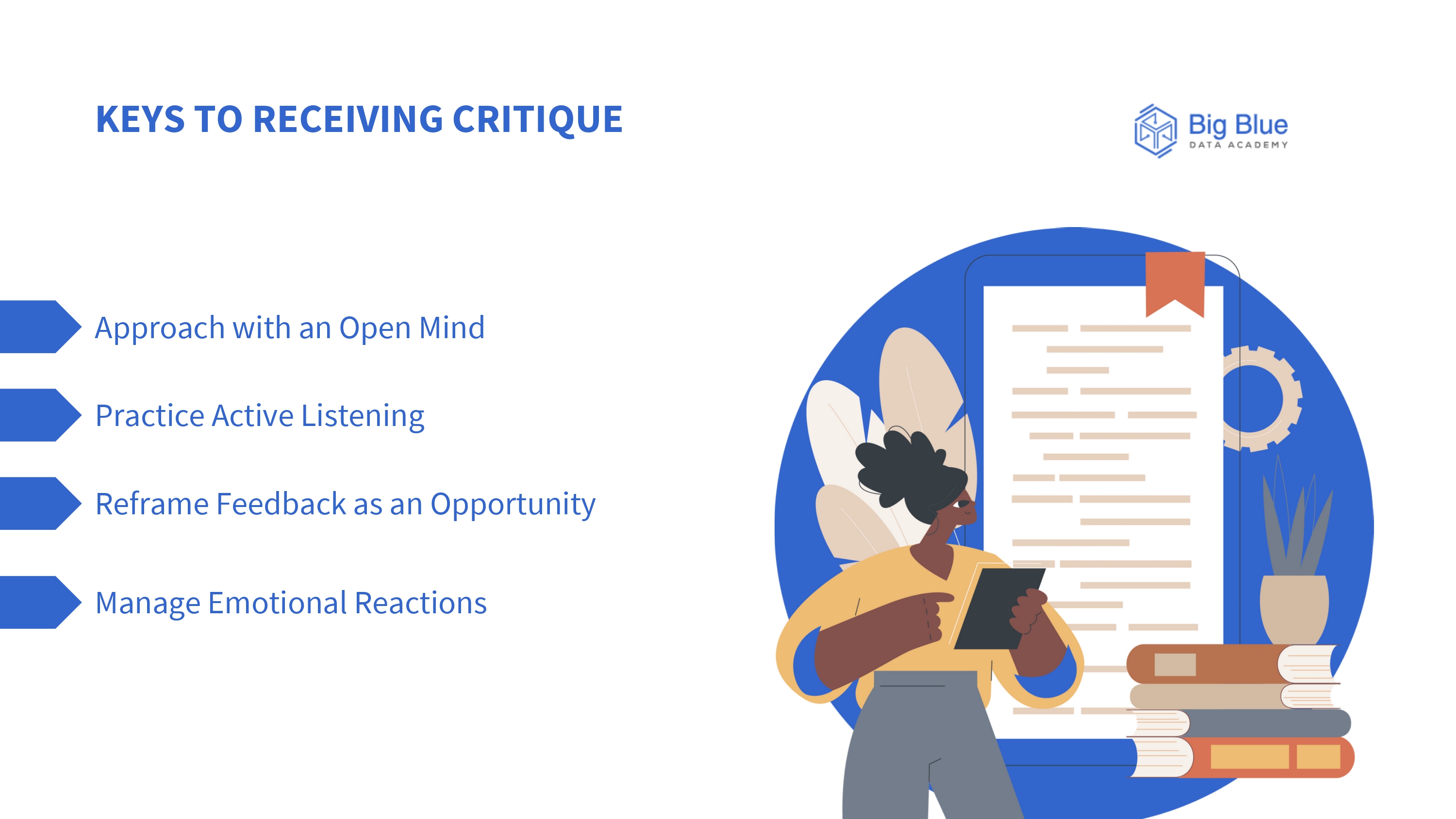Mastering Feedback: Giving & Receiving Critique
Did you know that 96% of employees believe that receiving regular feedback is something positive?
This statistic alone underscores the invaluable role of feedback in the modern workplace.
Giving or receiving feedback is not just a routine process. It is a powerful tool for fostering, improving, and promoting a culture of continuous learning.
Let's explore the fundamentals of feedback:
-Understanding it
-Giving it effectively
-Gracefully receiving it

Understanding Feedback
What exactly is feedback and why is it so critical for personal and professional development?
Feedback can be defined as the process of providing information, evaluations, or opinions about someone's performance or behavior.
It is a fundamental tool for growth and improvement, providing individuals with valuable insights into their strengths, weaknesses, and areas for development.
Whether it's constructive criticism or positive reinforcement, feedback plays a crucial role in helping individuals learn, grow, and excel in their endeavors.
Giving Feedback Effectively
Giving feedback is an essential skill in both personal and professional relationships.
Here are some key strategies to help you master this art:

Be Specific
When giving feedback, be as specific as possible.
Avoid vague or general statements and instead focus on providing concrete examples.
For example, instead of saying "Your presentation was unclear", try saying "Your slides lacked specific data to support your points, which made it difficult for the audience to follow".
Be Actionable
Feedback should be actionable, meaning it provides clear guidance on what the recipient can do to improve.
Rather than simply pointing out flaws, offer suggestions for improvement and practical steps to take.
For instance, instead of saying "Your writing needs improvement", you could say "Consider varying your sentence structure to make your writing more engaging".
Be Respectful
Respect is key when giving feedback.
Avoid being overly critical or harsh, and always deliver feedback with empathy and sensitivity.
Remember that the goal is to help the recipient grow and develop, not to tear them down.
Always acknowledge their efforts and strengths, even when addressing areas for improvement.
Keys to Receiving Critique Gracefully
Receiving critique gracefully is just as important as giving feedback effectively.
Here are some key strategies to help you navigate receiving critique:

Approach with an Open Mind
When receiving feedback, approach it with an open mind and a growth mindset.
Instead of viewing feedback as criticism, see it as an opportunity for growth and improvement.
Keep in mind that feedback is valuable information that can help you develop your skills and reach your goals.
Practice Active Listening
Actively listen to the feedback being given without interrupting or becoming defensive.
Pay attention to both the content and the intent behind the feedback.
Clarify any points you don't understand and show appreciation for the feedback by nodding or verbally acknowledging it.
Reframe Feedback as an Opportunity
Reframe feedback as an opportunity for learning and development rather than as a personal attack.
Instead of dwelling on any negative emotions that may arise, focus on how you can use the feedback to improve.
Ask yourself what you can learn from the feedback and how you can apply it to your work or personal growth.
Manage Emotional Reactions
It's natural to experience emotional reactions when receiving critique, but it's important to manage these reactions effectively.
Take a moment to process your emotions before responding, and avoid becoming defensive or argumentative.
Instead, respond calmly and professionally, and thank the person for their feedback.
Last but not least…
Mastering the art of giving and receiving feedback is not only crucial for personal and professional development but also for fostering a culture of continuous improvement within organizations.
By embracing feedback with an open mindset, actively listening to others' perspectives, and leveraging feedback as a catalyst for growth, individuals can accelerate their learning curves and enhance their performance.
Remember
Feedback is not just about pointing out areas for improvement; it's about empowering individuals to reach their full potential and drive collective success.
So, embrace feedback as a powerful tool on your journey to excellence.
Ready to level up your skills?
Dive into more insightful articles on our website or take the next step by joining our dynamic Data Analytics Bootcamp.


.jpg)